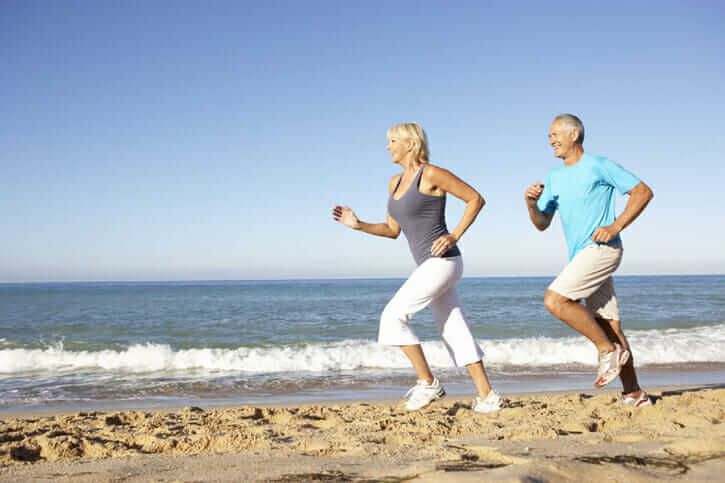Let’s get down to business. Your heart is more than a muscle. No doubt, you are reading this because you want to know how to get your heart and body as strong as possible and realize the benefits you can expect to see and feel from regular participation in a heart healthy centered exercise program. The good news is that by participating in a regular, daily habit of physical activity not only will your heart get stronger and function more efficiently, the muscles, joints, tissues and other organs will benefit as well.
The heart is not only the physical center of the body but the emotional center as well. When you are stressed, anxious and generally emotionally distressed, the heart and surrounding anatomy ‘respond’. This response may present with an accelerated heart rate, increase in blood pressure, and tightening of the chest and shoulders. This is why controlling stress, eating well, drinking plenty of fluids, and getting good sleep are all vital components of a cardiac health program, physical activity will only take you so far.
A strong argument can be made that, due to poor behavioral and lifestyle choices, between working, sleeping and family and life commitments, the average person is left with very little time for physical activity. This is why good heart health habits are so vital and are often stressed by healthcare providers as the key to achieving sustained well-being and high quality of life. Every little bit does count: what you eat for breakfast, that walk you take at lunch, the quality of your sleep, and a healthy home and work life all contribute, for good or ill, to your health.
During a cardiac event, heart tissue is damaged. Scar tissue, lingering damage to the neurology (i.e. circuitry) of the heart, or weakening of valves are all examples of potential after-effects of a cardiac episode. To strengthen the heart and address these deficiencies, the wise approach is to recommend patients follow the best-practice exercise protocols from nationally recognized certifying bodies such as the American College of Sports Medicine or the National Strength and Conditioning Association.
But for most of us, because 80 percent of care occurs outside medical setting, it would be wise for anyone looking to participate in a heart healthy program to actively pursue resources that not only strengthen the heart, but also teach the body to move more efficiently.
The cardiac health program, aka the Strong Heart Program, in Exercises for Cardiac Recovery will certainly improve your cardiac function, and while that is the primary focus of the book, it would not do to overlook the other components of fitness that we seek to improve as part of a complete prevention and recovery plan.
These components (based on ACSM’s Guidelines for Exercise Testing and Prescription) include:
- Cardiovascular endurance: the ability to sustain aerobic physical activity
- Body composition: percentage of the body that is muscle, fat, bone
- Muscle strength: the ability to exert force
- Muscle endurance: the ability to perform without fatigue
- Flexibility: the body’s range of motion
When considering the design of your cardiac health program in the New Year, please consider these components as points to consider including and where you may need to improve. Depending on your current level of cardiac health, if you haven’t been consistently active in some time, consider seeing your primary care provider for a check-in. Take notes in a journal of how you feel day to day before and after physical activity, what was difficult vs. exercises that you successfully completed with little effort. Making note of your heart rate and blood pressure are quick, yet vital notes to add in your daily journaling.
Here’s to your good health.
William Smith, MS, NSCA-CSCS, MEPD works for a nationally recognized healthcare system in the New York metropolitan area providing health and wellness services. His focus is in special populations and how healthcare providers and fitness professionals can work more closely together.
Keith Burns, MS, CSCS has served in the exercise science field as a strength and conditioning coach at the collegiate and professional level. He currently works as a tenured track Instructor of Exercise Science at Raritan Valley Community College.
Christopher Volgraf, CSCS holds the NSCA Certified Personal Trainer, Certified Exercise Physiologist certification from the ACSM. A founding employee of the Princeton Longevity Center, Chris proudly served as Director of Fitness and Senior Exercise Physiologist from 2002-2016.





